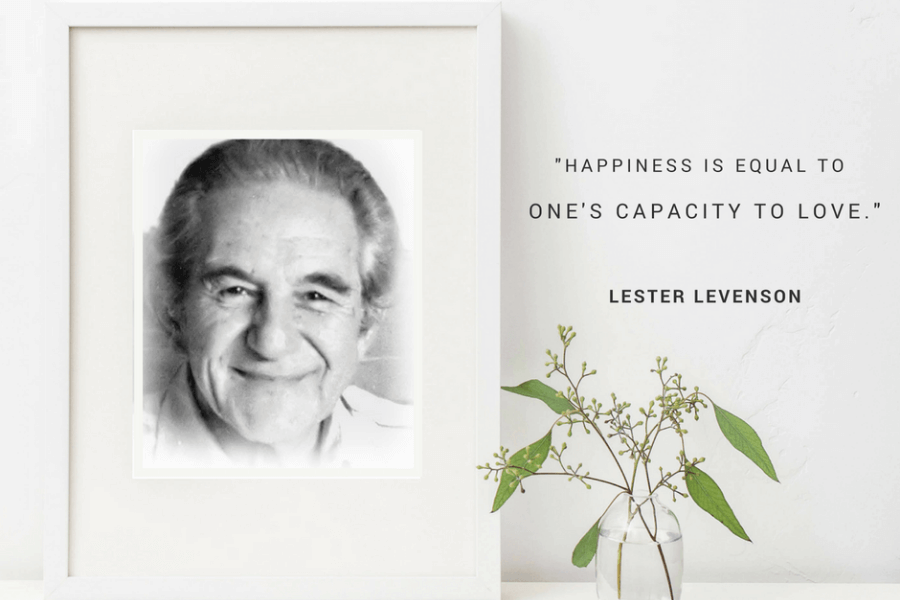
Last Updated on March 26, 2020 by Ade Aprilia
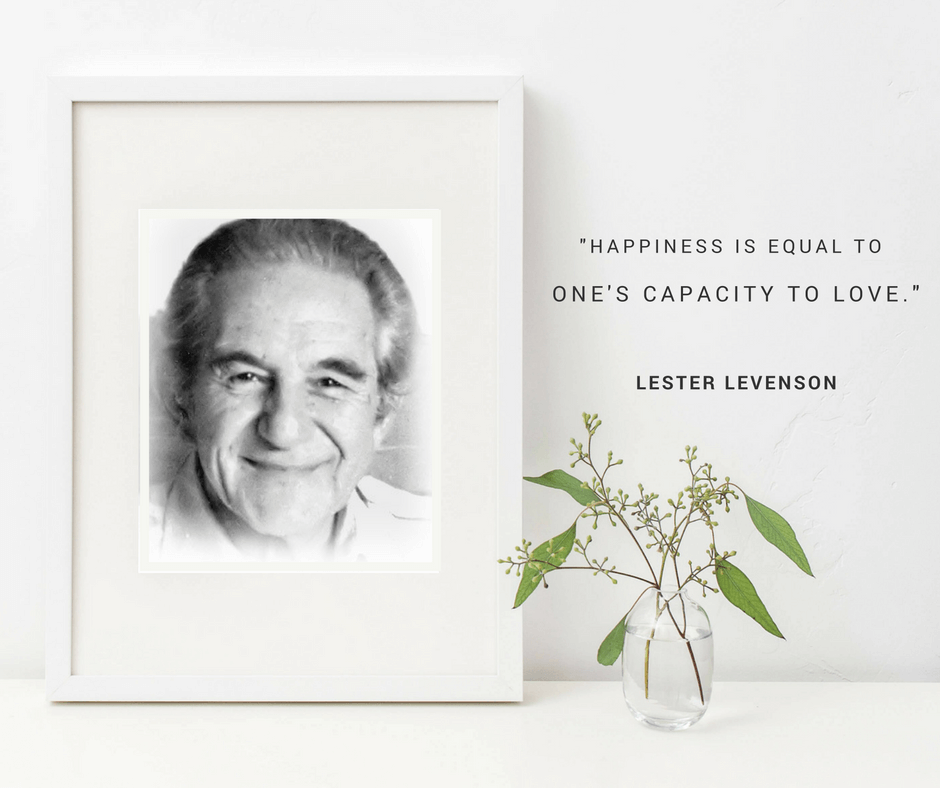
I’m creating this post and sharing this story only because very few people have ever heard of Lester Levenson
. . .a modern American master who turned misery, sickness, depression, and deathbed. . .
. . .to complete health, happiness, and prosperity.
Lester Levenson has helped me to see what I truly am. . .
. . .and my life has been forever changed.
Who Is Lester Levenson?
Lester Levenson was a man who had mastered life’s greatest challenge. He created The Sedona Method to save his own life.
In 1952, Lester Levenson was an absolute materialist – if you could see it and touch it, it was real.
Although successful at the money game, he was living alone, and his health was a mess. He suffered from depression, jaundice, migraines, hyperacidity, perforated ulcers, kidney stones, appendicitis, and persistent pain.
Then at age 42, he had a second and massive heart attack and barely survived. His doctor, Dr. Schultz, sent him home with no promise of life beyond the day he was in. “Get loafers,” was the advice he gave Lester to have him avoid the strain of bending over his shoes. Lester Levenson was angry.
Fortunately, Lester Levenson was a man who loved challenges. So, instead of giving up, he decided to go back to the lab within himself and find some answers.
Because of his determination and concentration, he was able to cut through his conscious mind to discover what he needed. What he found was the ultimate tool for personal growth—a way of letting go of all inner limitations.
Lester Levenson was so excited by his discovery that he used it intensively for a period of three months. By the end of that period, his body became totally healthy again.
What Lester discovered firsthand is that we are all unlimited beings, limited only by the concepts of limitation that we hold in our minds. These concepts of limitation are not true; furthermore, because they’re not really true, they can easily be released or discharged.
Lester’s experience made him understand that not only could he practice this technique himself, he could teach others how to do it as well. As a result, he began working with people, both in small groups and individually.
Furthermore, he entered a state of profound peace that never left him through the day he died on January 18, 1994.
Read Part 1 here.
Lester Levenson Shares His Discovery
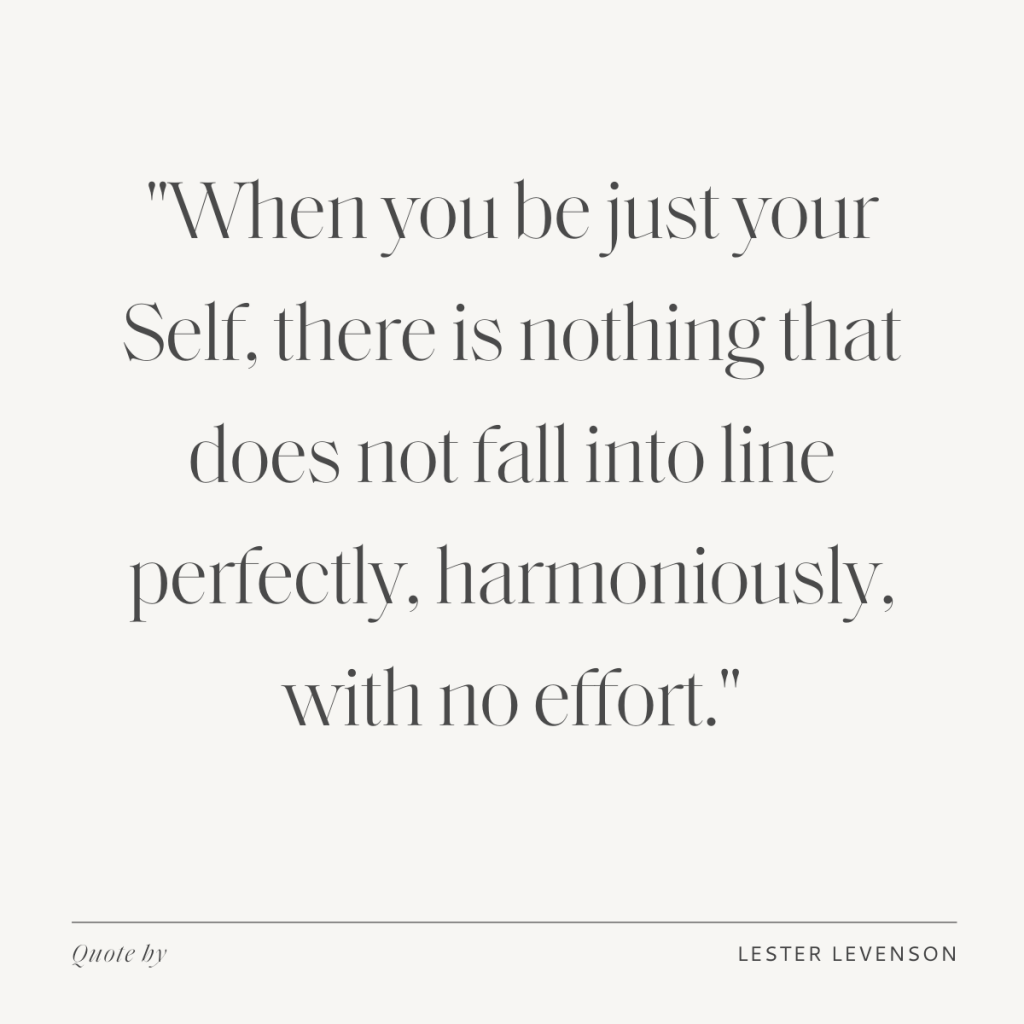
Lester Levenson went first to those who seemed to be already looking in that direction, the metaphysical groups. Looking in the newspaper, he found weekly meetings listed for the various groups in New York City and began to attend them and make friends.
After the three-month period, I attended a metaphysical society just two short blocks away, Dr. Schaefer’s group. He would call the students up to the front and ask them to give a talk.
The first time he called on me, I told him I didn’t want to go up, so he by-passed me.
And then, after he stopped asking me, I realized it was silly.
The only reason I wasn’t speaking was that the old tendencies remained, but the effectiveness of them was totally gone. The compulsiveness was done away with, and even though the tendency remained, it was like a burnt rope. If you try to pick up a burnt rope, it just falls apart. It looks like a rope, seems to be a rope, but it has no strength.
Seeing that, I volunteered to go up and give a talk. First time in my life! Here I am, up in front of a group of about sixty people. When I got up there, I was surprised that I wasn’t nervous. I was looking at them; they were looking at me. And as I was talking, I had a second thing going on in the background, “Gee!” I kept thinking. “This is easy. I never knew it was this easy!” And that was my first experience in my life of getting up in front of a group and talking.
Lester Levenson also began to read books on metaphysical subjects and was pleased to find that others had also been experienced the things he had experienced. In fact, there was quite a body of available literature on the subject.
He often found himself the center of attention with his new friends, because they had not met anyone before with such a depth of personal experience of what they were seeking for themselves. They found him very easy to talk to and were eager to hear how he had achieved his state of personal peace. It was difficult for him to put the actual process into words but he found that in talking to people on a deeply personal level, he would find the right thing to say to help them achieve some relief from their pent-up emotional blocks.
Lester Levenson Makes A Million Dollars
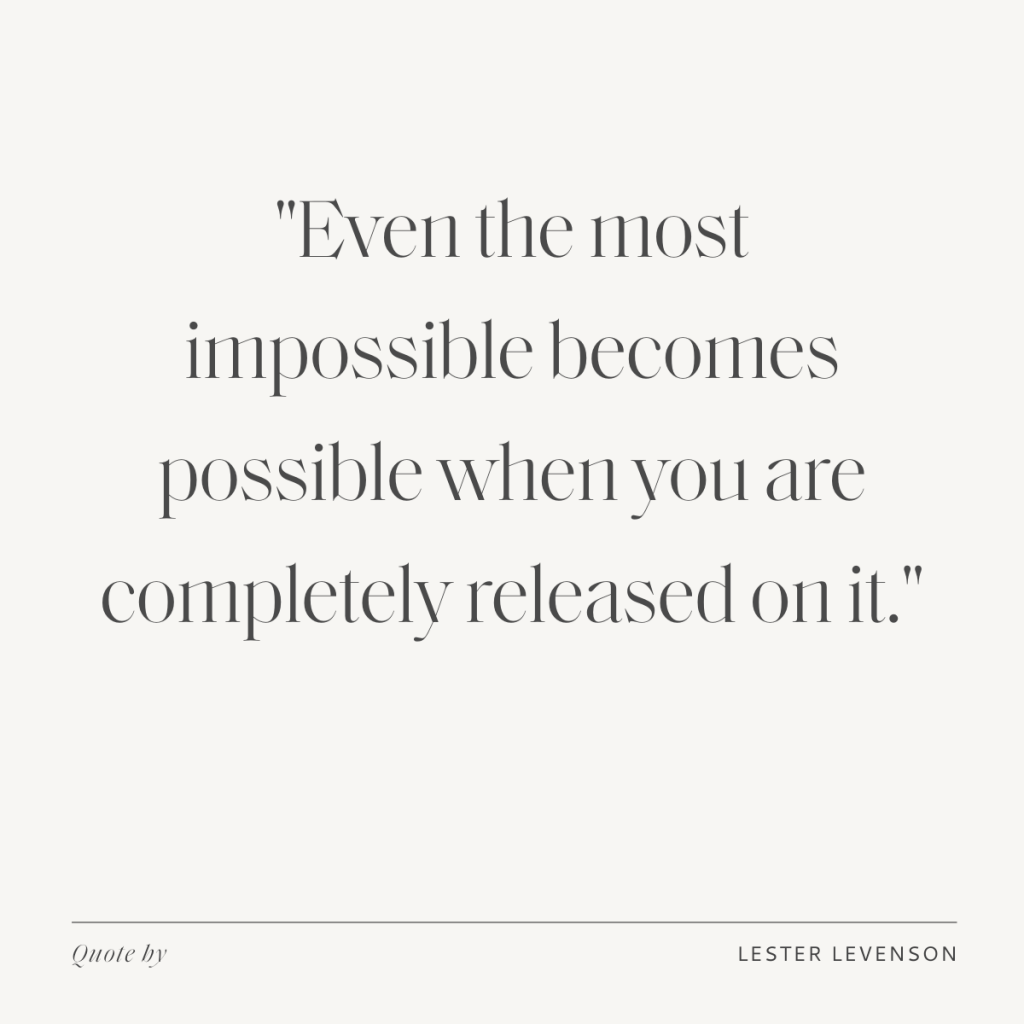
The primary thing he talked about in those days was the inner perfection of Beingness of each one. As he spoke, in his mind he would see the other person as all-perfect, all-knowing, all-powerful–a perception that gave the other one quite a lift.
However, from his long-time experience in business, when asked, Lester Levenson would occasionally offer guidance on a practical level. And, in 1953, it occurred to him that despite all his accomplishments, he still had not made a million dollars. He had also noticed that many of his new friends had the impression that only by being poor could they have the freedom they’d read about. Many of them had interpreted the tranquil state as one of lack.
Admonitions such as “Let go of your attachment to things” and “Things cannot make you happy” had been misinterpreted as meaning that one had to give up ambition, money, prosperity, and abundance in order to achieve inner tranquility.
Lester knew that this was not so, that it was the attachment to money and things that created the non-freedom and that this attachment was itself only a feeling.
He was also very sure, based on his own experience, that all feelings could be corrected, let go, or released.
So he set out to make his millions, to prove both that one could have and accomplish things in the world without the deadly attachment and that spiritual freedom didn’t mean deprivation. On the contrary, it indicated the ability to have, to be, and to do anything and everything.
But talking about it was one thing. Actually doing it was the only way to prove it.
Lester Levenson decided to prove his point with real estate in New York City. In 1953, he began buying apartment buildings with no cash down. He would either run them for profit or sell them for a quick profit. Within six months, he had acquired well over a million dollars equity in the property.
I started in the real estate business with no cash and bought apartment houses using mortgages and loans. With no effort, I acquired twenty-three apartment houses of twenty to forty units each.
I found it was easy to do. Every deal had to be a very harmonious one. Everyone in it had to gain. If there were a broker involved, I made sure he got his full commission. The seller benefited by getting what he wanted, his building sold. And if there were a lawyer involved, he got his share. Everyone benefited in every deal. That’s the way all deals should be. There’s no need for anyone to suffer. Everyone should get what he wants out of it. Everyone should benefit. Every seller wants to sell. Every buyer wants to buy. I found that harmony is the basic law of the universe and when we’re in tune with it, things can be done with little effort.
“What’s the next step?” he wondered. He had proven he could apply his new theory to business; he had over a million dollars; what was left to prove?
Then it occurred to him that the need to accumulate wealth was not security. It could all be lost. Also, the need for accumulation indicated a lack of conviction in one’s ability to produce what one needed at will.
Therefore, he decided, “From here on, I have everything I need as I need it,” and proceeded to test out still another theory.
Lester Tests His Abundance Theory

It was a few days before Christmas, cold, and I wanted a short vacation of two weeks in the warm country. Los Angeles was farthest away from New York City, so I said, “Well, I’m having a vacation in Los Angeles over the Christmas- New Year holidays.”
With full confidence that “everything is A-okay and taken care of,” I packed a bag and walked out of the house.
Within a block, I bumped into a man I hadn’t seen for many, many years who said, “Hey, Lester! I’ve been looking for you. Remember that money I owed you? I’ve been wanting to pay you. I didn’t know what happened to you.” And he handed me enough cash to buy a round-trip ticket to Los Angeles, which I did and immediately left.
When I got to Los Angeles, it occurred to me to call an old friend who said, “Oh, I’m so happy you called, Lester, we just got a new apartment, we have an extra room, and you must stay with us. Where are you?” And they picked me up.
The next morning I was in the kitchen thinking, “Well, gee, here I am in Los Angeles without a car. It’s impossible to get around without one.” And I said, “Well, that’s taken care of,” and I dropped it.
I called Burl, and he said, “I’ve been thinking of you, Lester. Where are you? I want to see you, and I’m coming right over.” And he was there in a matter of about fifteen minutes.
And we’re having coffee over the kitchen table, and without my asking, he puts his hand in his pocket, takes his car keys out, slides them across the table to me and says “You’ve got my car as long as you stay here. I have no need for it. I’m living near the studio, and I walk to work.”
I thanked him. Now I had everything I needed.
After about ten days, I got the feeling that I wanted to go back to New York. It was on January 3rd. I called TWA, and they said, “Oh, I’m sorry. We have no reservations for thirty days, all taken up. And we can’t even put you on the waiting list because the waiting lists each have thirty or more people.”
I just said “Thank you,” hung up and said to myself “Well, who needs a reservation? When I feel like going, I’ll go!”
So, the next morning, I woke up and asked myself, “Do I want to go?” And I said, “Yeah, I think I want to go.”
I packed my bags and got down to the airport about ten o’clock, asked where the planes depart for New York, went to the gate, and a man was loading a plane for New York.
I said, “Are there any no-shows?”
He said, “Yes, there is one. But wait until I load everyone. Just stand here.”
While he was loading, a woman asked the same question.
He said, “I don’t know, madam, but if you’ll stand behind this man, we’ll find out.” And he put her behind me.
He loaded the plane, walked right toward me, reached around me, took this woman by the arm and put her on the plane.
As far as I was concerned, everything was 100% okay!
He came back to me, and his jaw dropped! His mouth fell open when he realized what he had done. So I had to calm him down, instead of him calming me down.
And after I calmed him down, I said, “Well, when’s your next plane?”
He said, “In about an hour. Oh, there it is coming in right now.”
Well, he put me on that plane, which got me to New York two hours earlier than the other one. It was a non-stop flight, the first one I ever had cross-country. At that time, they usually made at least one stop. Non-stop flights were new and few. This was in the days of the DC-6s and the Constellations; there were no jets at that time. It wasn’t easy for them to make cross-country non-stop flights.
Then I remembered that when I’d hung up and said, “Who needs a reservation?” I’d said, “Not only that; I’ll have my first non-stop flight cross-country.” And that was the reason for his putting me off the first flight and putting me on the next one.
And so I got back to New York–started out with no money, and came back with no money.
Later, a trip around the world again proved the same principle of abundance: “I have everything I need as I need it.”
Lester Abides In Truth
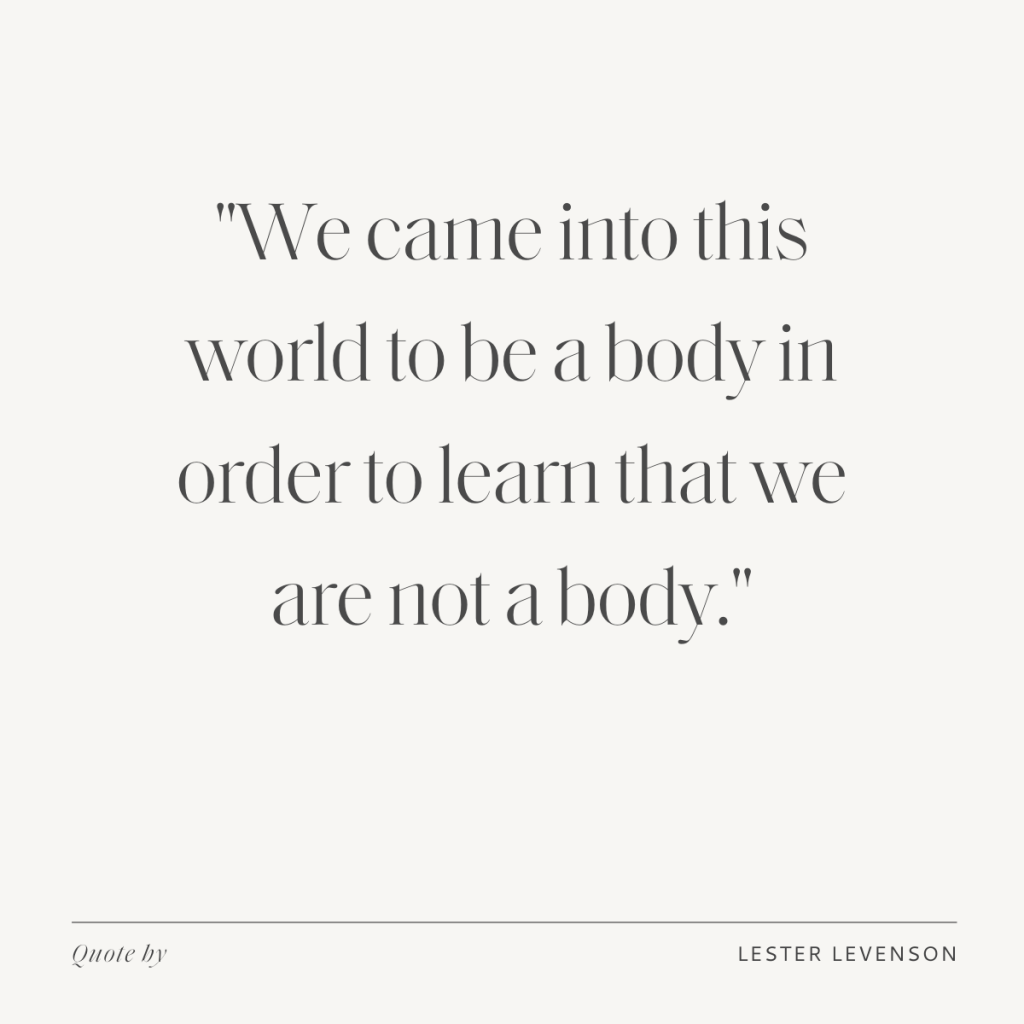
After Lester Levenson’s tremendous breakthrough into peace in 1952, that awareness of the truth never left him. Whether he was making a real estate deal or visiting his family or sharing his experience with others, he was always aware of and residing in his own inner Beingness of peace.
People loved being with him because he saw them in the same way that he saw himself: all-beautiful, all-knowing, all-powerful, all-perfect, all-peaceful. This powerful perception projected itself to each receptive person and activated that inner core in which each was all those things.
Many people had experiences of this truth of themselves while in his presence, and they were eager to have more and to hear of his experiences. He was always happy to share with others and began giving talks about what he had done.
At first, there was no special effort or promotion in that direction, but through word of mouth people would hear of him and show up wherever he happened to be. Often, these impromptu gatherings would take place over coffee at a cafeteria on West 57th Street in New York.
Also, there were occasions when he drove coast-to-coast, and on stopovers along the way, he would start talking to someone, he or she would get excited and call friends who would invite their friends.
Before long, there would be a hundred or more people interested in hearing him speak.
At those times, Lester would stay several days, the group would rent a large hotel meeting room, and by the time of his talk, there were often a thousand or more people in attendance.
He never charged any fee for his work, nor would he accept any money when people offered it. Lester knew he had everything he needed as he needed it, he’d proven that more than once, and his real estate ventures continued to be profitable. He had no need for anything.
In 1958, it occurred to him to move to California. He gave up his New York apartment, bought himself a new Chrysler and a 31-foot mobile home, and headed west. His original destination was San Diego but, while driving through Arizona, he saw a signpost for Sedona, and his inner voice said, “Go there.”
“Why?” he asked himself.
“Just go,” his inner voice answered, “and you’ll see.”
When he drove into the quiet Old-West town set in the midst of towering red rocks, he understood why he had been drawn to Sedona. The beauty and the feeling of peace were so strong; he felt as though he were coming home.
He contacted a realtor and was shown an isolated 160-acre ranch. He bought the property for cash, no mortgage, and moved into an old stone house which the original rancher had built on the property. It was very peaceful, totally isolated and surrounded on all sides by forestry land.
The nearest neighbor was a mile away, except for a woman who owned and occupied a small cottage just inside the ranch entrance gate. They would occasionally meet when both were out walking, and one day she mentioned how lonely she got living alone so far from town.
As they talked, it occurred to Lester that she might like to trade her cottage and property for a similar house and property in town. When he proposed it to her, she was delighted. She accepted his offer to find a suitable lot and build a house on it to her specifications.
Lester did all the work himself. He dug and poured the foundation, erected the walls, put on the roof; he did everything. It was final proof to him that his health was totally restored and that he had regained the strength, energy, and stamina of a very young man.
When the house was finished, they traded.
He called his new acquisition the cottage. Now his ranch was totally isolated, and he stayed there alone for the next few years.
Once or twice a month he would make the trip into town for food and supplies, but the rest of the time he was alone on the ranch. It was a very different way of life than anything he had ever experienced before, and he loved it.
His work with people, however, never completely stopped. He would occasionally drive the 110 miles to Phoenix to stay for several days or a week at a time. He also invested in some apartment houses in Phoenix during the 1960’s.
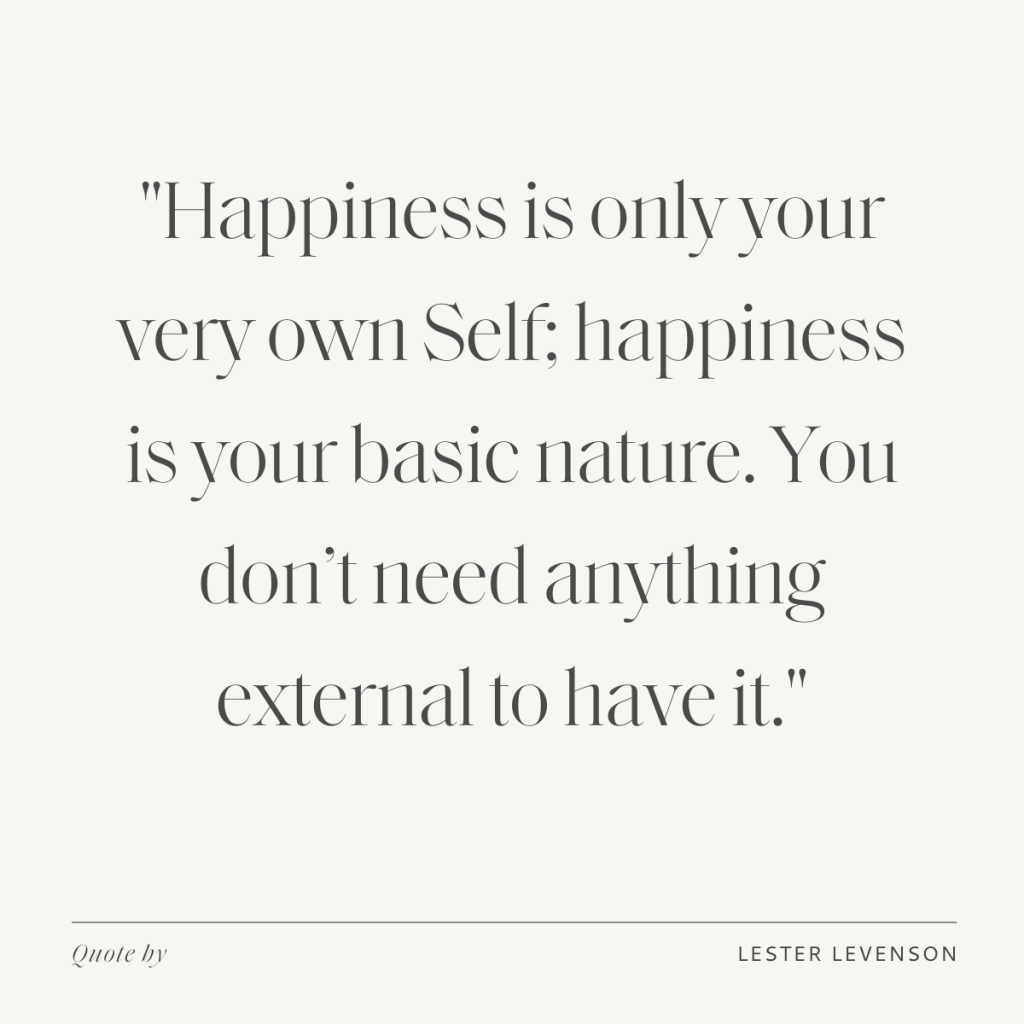
After a few years, he began to make periodic trips several times a year to California where he had a regular group he worked with. And every year or so he would go to New York. People sought him out at the ranch, too, which he had named “Self Haven.”
In 1961, the first person, a man named Doug Dean, came to stay for a while at the cottage. Shortly after Doug left, three women came.
As the years went by, others came and went. Until 1975, there were always some people living at the cottage. A few women stayed for several years, but most people came for a few months or so to get themselves quiet and re-energized. Then they would leave to resume their lives in the world. It was a very peaceful way of life and Lester was content.
The comings and goings of himself and others were incidental and were never able to touch or disturb the vast quiet of the inner state he had discovered in himself in 1952. He could have gone on that way for the rest of his life were it not for his wish that everyone discovers that state for themselves. He felt his oneness with all and, as he described it: “I wanted the rest of me to discover what I had discovered. So, after a while, I began thinking about how to get this knowledge out to more people.”
Now you.
If you’re inspired by Lester Levenson’s story, here’s what you can do next…
1. Explore Sedona Method and read my review here.
2. Try what he discovered by downloading this FREE guided audio.
Let me know what you’re experiencing in the comment below.
And have fun with your journey!
PIN THIS!
Did you find this post useful, inspiring? Save this pin to your board on Pinterest. That way, you’ll always have this reading on hand!
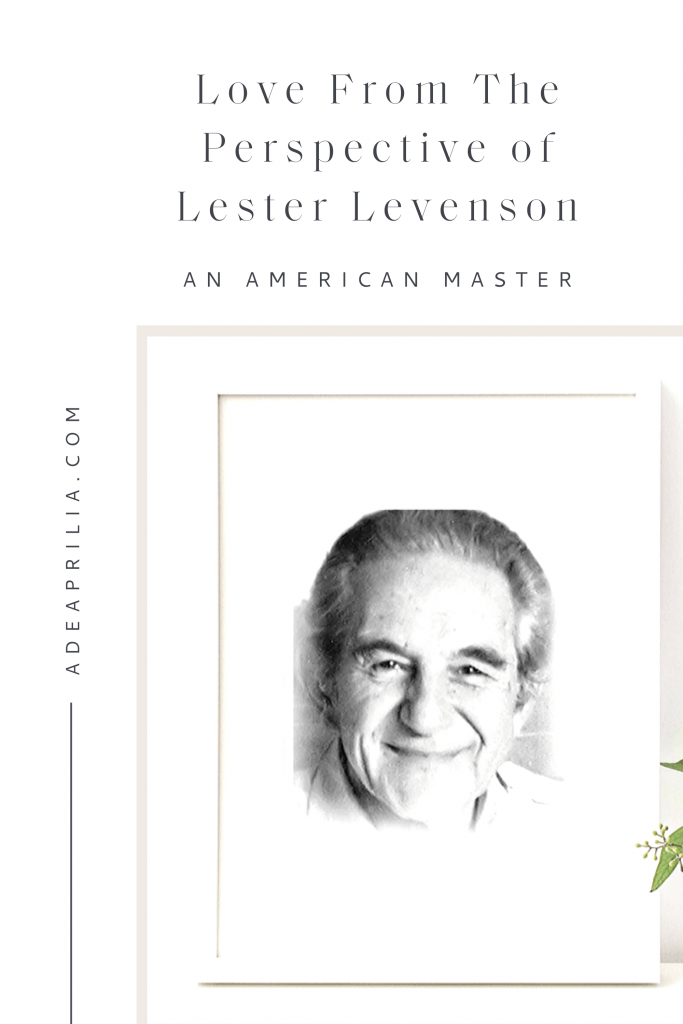



Great background into how Lester effected his total transformation. I’ve only recently discovered Lester’s work, and found your pieces among the best about him. Thank you.
Steve, I’m glad you found this. Thank you for reading.
Love,
Adelia
Adelia, I loved this inspirational story about Lester Levenson. I’ve been listening to some of the youtube videos about him, but this is the first time I’ve heard all the details in full. How empowering!
Hi, Miriam! Good to see you here! Yes, Lester’s stories are really inspiring, I decided to share what I’ve heard about him from the people that knew him when he was still in the body. I’m happy that it empowers you too. Keep releasing and lots of love to you.
Hi. Thank you for this story.
Do you know if Lester demonstrated how to manifest thoughts instantly?
I have used the method for a few years and is helps me alot but I’m a sceptic about this aspect of the story. He talks about manifesting things instantly like magic in a few lectures and I always think why didn’t he just do it then and people would believe like Jesus did?
Hello. Sorry for the late reply. I made a 30 Days Challenge workshop so I didn’t check this blog, and I just got time to check this.
Lester’s audience in the 1970s had different consciousness from what we are now. So he spoke in a different language. Based on my experience, as long as you’re trying to manifest from the perspective of a person, it won’t be sustainable. And any time you are manifesting from the point-of-view of your personal self you are automatically (by default) in the consciousness of separation.
As in:
There’s a “you”.
And separate from you…
There’s time.
There’s the manifesting process.
There are actions you may need to take.
There are personal thoughts of limitation (fears!) about your goal and your ability to actually manifest it and have it.
And, of course, there is the goal itself (the better job, the soul mate, the higher income, the sports car, etc) that you are trying to manifest that is “out there” separate from you.
So what’s the answer? Drop the identification of personal self and “see” EVERYTHING as ONENESS ONLY.
When you keep releasing until there’s no separation, you’ll understand what Lester talked about, and in my own experience, you get everything you need when you need it.
I hope that helps.
Thank you for this article. I’ve been listening to Lester lately and this information you shared here was a great help. I especially love the story about Lester’s trip and trusting things would appear as needed.
I bought a dress on a recent trip and wanted an Apple Watch band to match it. I’d never seen what I was looking for, but had an idea in my mind of what I would like. I went to 5 stores and the last one I asked the lady behind the counter if she could show me where the Apple Watch bands were. She looked perturbed and a little put off and just said, follow me. My first thought was to judge her, then I caught myself and decided to see her as another aspect of me and I suddenly felt compassion, love and connection with her. Then as we spoke, she completely softened and even opened up and shared some of her story. It was beautiful. I didn’t find what I was looking for but said to myself, let go, it’ll come somehow someway it will show up and it will be better than I imagined. As I was leaving it occurred to me to ask her if she knew another place I might look for a watch band. She said, did you try Target? I don’t know why I didn’t think of that. I said, I’ll go now, thanks! I went to Target and there it was, exactly what I desired.